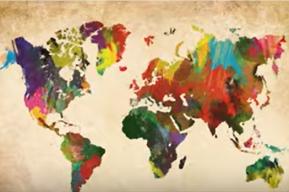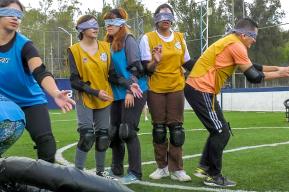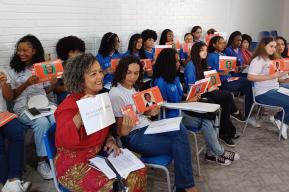These are the initial findings issued in October 2020 from the two-year AAPI COVID-19 Project launched by Harvard University’s Department of Sociology, in partnership with UNESCO, in May 2020. The AAPI COVID-19 Project is a multi-method project investigating how COVID-19 is shaping the lives of AAPI communities in the United States, focusing on the intensification of racism and xenophobia faced by them.
Over the past few months, the AAPI COVID-19 Project has collected interviews to understand how AAPI individuals are experiencing the pandemic. Project researchers are intentional in creating community connections with groups that are often invisible in aggregate data or are silenced altogether. To best capture the diversity of culture, language and experiences of various AAPI groups, the team has made intentional efforts such as connecting with the Laotian community in the meatpacking industry and building relationships with Pacific Islander community organizations.
Across occupations, AAPI workers are placed in a dilemma between economic and moral obligations, and their own safety. The Project’s interviews thus far have underscored that the economic cascade and cultural confusion engendered by the pandemic have trapped many restaurant owners into significantly cutting down on business operations. This was often a response to the possibility of their loved ones’ health being jeopardized, but these decisions only diverted the problem to the uncertainty of recovering the income needed to support their family’s financial and physical wellbeing. AAPI healthcare workers are similarly faced with two competing necessities: providing quality care to patients and protecting their own safety. Especially as a greater proportion of AAPI individuals live in multigenerational households, healthcare workers magnified a widely expressed feeling of being split between the fear of exposing family members to COVID from their workplace and losing access to any income if they were to be laid off. Such fears have concrete psychological and wellness effects as well: some interviewees admitted that the looming dangers of instability and fears of damage to property due to racism increased their stress and exacerbated other health conditions.
Already opting to separate themselves from family and loved ones due to increased physical exposure at work, AAPI individuals report multifold feelings of isolation because they simultaneously contend with both overt and covert anti-AAPI racism. Overt forms include AAPI healthcare workers being questioned by their patients about whether they had been to Asia or whether they are Chinese. Others have been called “Coronavirus” in grocery store parking lots or harassed by strangers on their way to work. AAPI interviewees also expressed feeling exposed or uneasy in public spaces as they notice more subtle actions taken by the people around them.
With UNESCO’s support, data collected from the AAPI Project will be shared on a wider platform, including the network of International Coalition of Inclusive and Sustainable Cities – ICCAR. The AAPI project will also contribute curriculum material for the Master Class Series against Racism and Discriminations in order to raise awareness on these issues among young people and empower them to act in their local communities.










